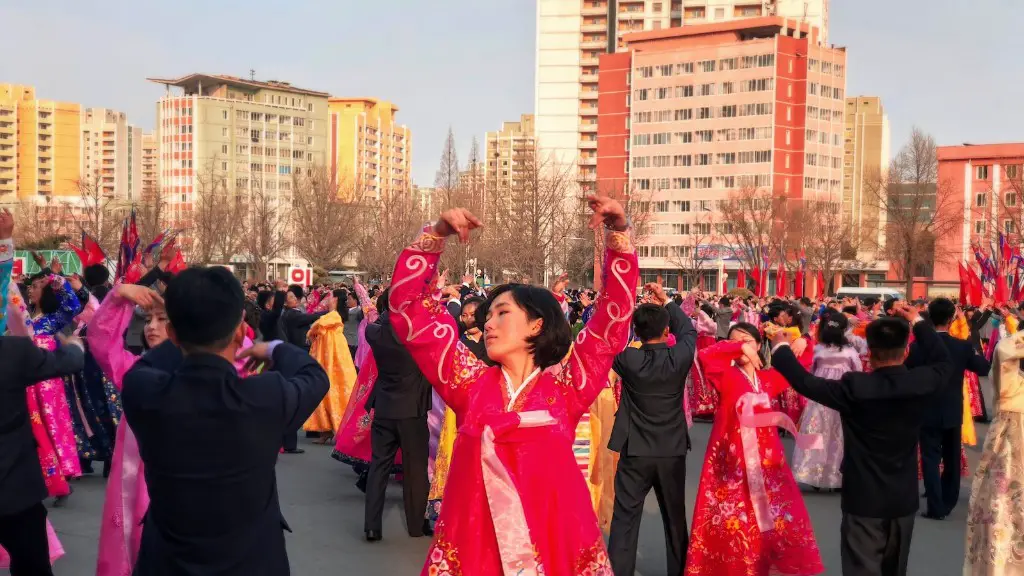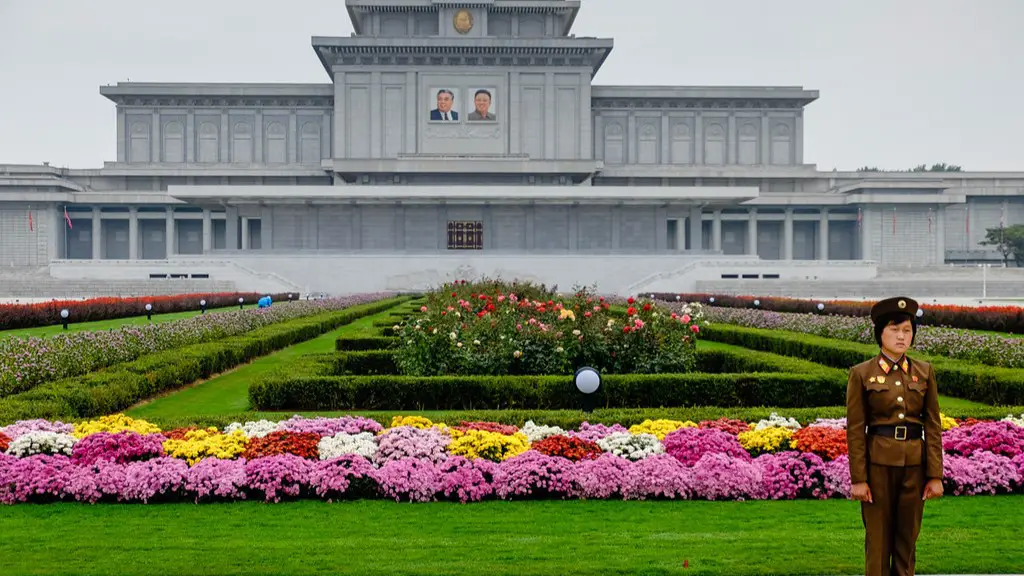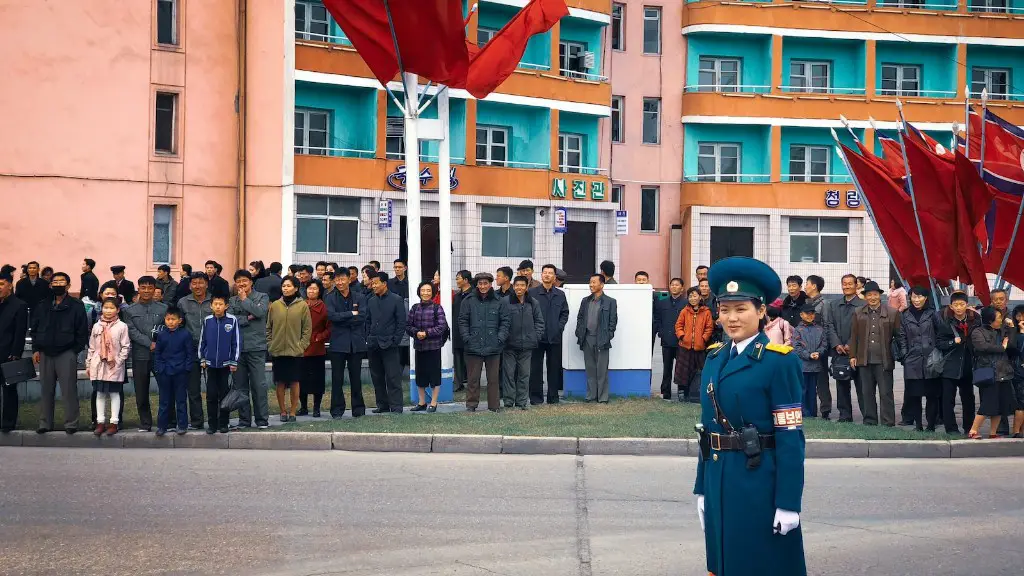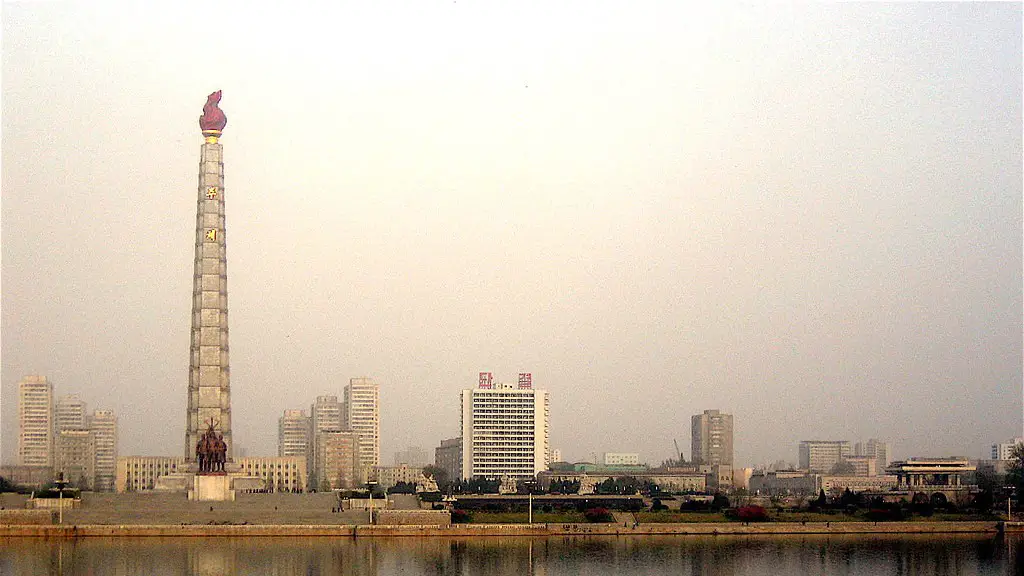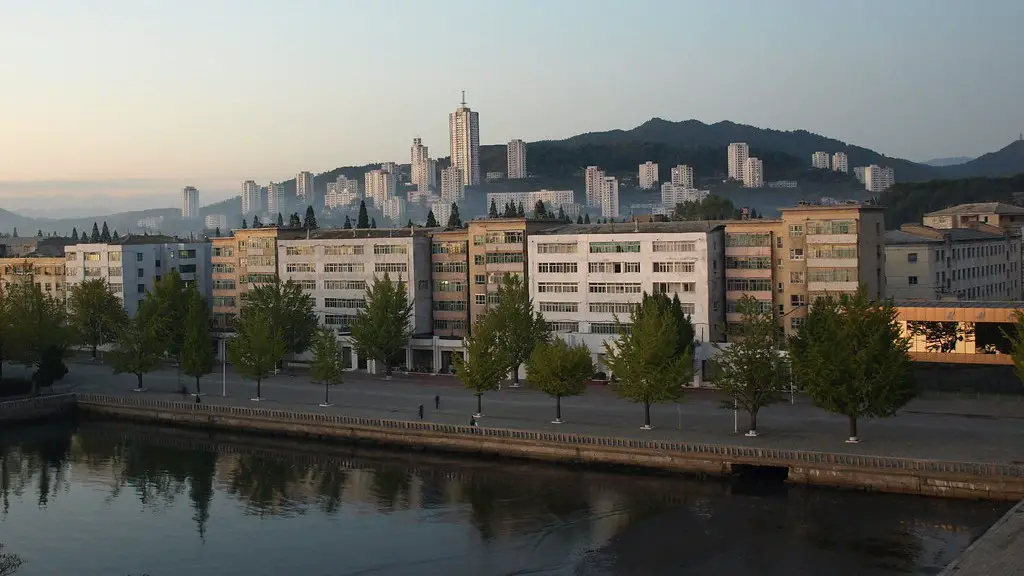When talking about North Koreas economic life, many people often overlook the industries the country has. North Korea, thanks to its reclusive nature and relative isolation, hasn’t been able to develop its economy in the same manner many other countries have. But even with all its limitations, the country has managed to build and sustain several industries.
The main sectors that contribute to North Koreas economy in total are electricity, trade, housing and construction, banking, metal and chemical, industrial machinery and equipment, fishing, food processing, and mineral resources extraction. North Koreas industry is very much dependent on heavy industry, raw material exports, and military goods. This means that there are very few consumer-oriented products and industries present in the country.
The biggest contributor to North Koreas economy is its mining industry. The country is a major producer of coal, iron ore, copper, zinc, lead, and graphite. In addition to these, the country also produces and exports zinc, antimony, tungsten, and iron. These are mainly used in the production of aircraft and military hardware.
Other industries in the country include steel production, engineering, shipbuilding, paper and printing, and machine tool production. These are mainly utilized in the production of military products and used to meet the countrys needs in certain areas.
When it comes to energy production, the country has several hydroelectric power plants and wind turbines that generate electricity for the country. North Koreas energy production does not come close to meeting the countrys electricity needs, however, so it is forced to import much of its electricity from neighboring countries, such as China and South Korea. North Korea also has several nuclear power plants, but their operation is not well known.
North Koreas manufacturing industry is mainly focused on military goods, though there are some civilian industries that exist as well. These activities include textile production for the military, automobile production, and the production of fertilizers and agricultural machinery. North Korea also has a small but growing pharmaceutical industry.
North Koreas transportation network is not as developed as that of its neighbors. Most of the transportation is done by rail, though there is reliable limited highway system as well. Aviation is also limited in the country, with only a few people having access to the two international airports. The rest of the people must use domestic airports.
North Koreas economy is mainly driven by its military industry, which generates most of its revenue. Though this has resulted in the country having access to more resources than most countries, it has also resulted in a severe dependency on foreign aid and imports. The country is also very isolated and lacks greater access to the global economy, making it difficult for it to develop further.
North Korean Trade with China
China is one of the main trading partners of North Korea and is its biggest export market. North Korea’s exports to China mainly consist of minerals, such as coal, iron ore and zinc. Chinese imports to North Korea include electronics, textiles, and industrial machinery.
North Korea’s trade with China has an important role in propping up its struggling economy. China is a reliable source of income for North Korea, allowing the country to generate more revenue and be more independent. Both countries also benefit from the other’s technical and economic resources, with China being able to obtain low-cost minerals and North Korea receiving access to Chinese manufactured goods.
The increased economic ties between China and North Korea could be a good step towards more economic and diplomatic stability between the two countries. China is by far the biggest supporter and benefactor of North Korea, and the increased economic and diplomatic ties between the two countries could result in a better relationship and more economic stability.
North Korean Economy and Sanctions
The North Korean economy has been greatly impacted by United Nations sanctions which have been imposed in response to the country’s nuclear weapons program. The sanctions have placed bans on North Korean exports, imports, and transactions with financial institutions, resulting in a decline in North Korean economic activity and a halt to most international trade.
The sanctions have had a massive impact on North Korea’s already declining economy. The decline of the real GDP growth rate from 4.5% in 2017 to 0.2% in 2019 can be attributed, in large part, to the sanctions. This has resulted in an increase in poverty levels and a decrease in the availability of goods, services, and commodities. It is estimated that the sanctions have caused economic losses of over $10 billion.
The sanctions have had some unintended consequences as well. One of these is to create a thriving black market for goods and services, which is helping to keep North Korean alive. In addition, the sanctions have forced North Korea to be more creative in developing new industries and ways to generate revenue.
North Korean Sustainable Development
The North Korean economy has been declining due to years of economic mismanagement, sanctions, and isolation. But, the country is now making efforts to improve its economy through more sustainable development. The government is focusing on developing renewable energy sources, such as hydropower, and investing in energy efficiency measures. This is helping to reduce the country’s reliance on imported energy, allowing them to reduce their import bill and align with global efforts toward reducing energy consumption.
The government is also investing in infrastructure, especially in rural areas, to improve connectivity and access to basic services. This should help reduce poverty levels and create a more stable economy. North Korea is also striving to reduce corruption and increase the transparency of its institutions, which could help attract foreign investment and increase the country’s economic activity.
North Korean Relationships with Other Countries
North Korea has historically had difficult relationships with many countries. But in recent years, the country has shown an increased willingness to work with other countries. North Korea has calmed tensions with South Korea and has also agreed to talks with the United States in an effort to reduce its nuclear weapon stance. North Korea has also opened up to some of its other neighbors, such as China and Russia, in an effort to improve relationships and increase economic opportunities.
These new relationships with other countries is a good sign of progress in North Korea. The increased cooperation with other countries could mean more opportunities for a more stable and prosperous economy. But it is important to note that the progress being made is still in its early stages, and much still needs to be done in order to achieve a more stable and prosperous North Korean economy.
North Korean Economy Impact of COVID-19
The North Korean economy has been affected by the COVID-19 pandemic, as the restrictions placed on travel and trade have greatly reduced the amount of money North Korean citizens can earn from abroad. North Korean citizens had been relying on remittances from those abroad to supplement their incomes. The pandemic has put a strain on the country’s already weak economy.
The North Korean government has taken steps to minimize the impact of COVID-19 on the economy. It has allowed citizens to use online banking, introduced import and export restrictions, and implemented quarantine measures to keep citizens safe. It has also allowed certain businesses to reopen and provided economic support to citizens in need.
The government’s response to the pandemic has been criticized for its lack of transparency. North Korea is one of the countries that has reported the lowest number of COVID-19 cases, and some have speculated that the government is under-reporting the true number of cases in the country. The country’s lack of access to vaccines and its low vaccination rate has also been an issue of concern.
North Korean Tourism and Leisure
The North Korean government has opened up the country for tourism in an effort to increase its economic activity. Several travel agencies have been offering tours to North Korea, and the government is promoting the country as a tourism destination. Tourists can visit sites such as the DMZ, the grand monuments in Pyongyang, and several natural sites.
In addition to tourism, there has been a recent focus on developing leisure and recreational activities in North Korea. Since the early 2000s, the government has been allowing foreign companies to build amusement parks, water parks, and other recreational activities. These activities are seen as a way to boost the economy and attract foreign investment.
North Korea’s focus on leisure and tourism is a positive step in the right direction. It shows that the country is willing to open up to the outside world and attract foreign investment. It is also helping to generate much-needed income for the country and expand its economic activity.
